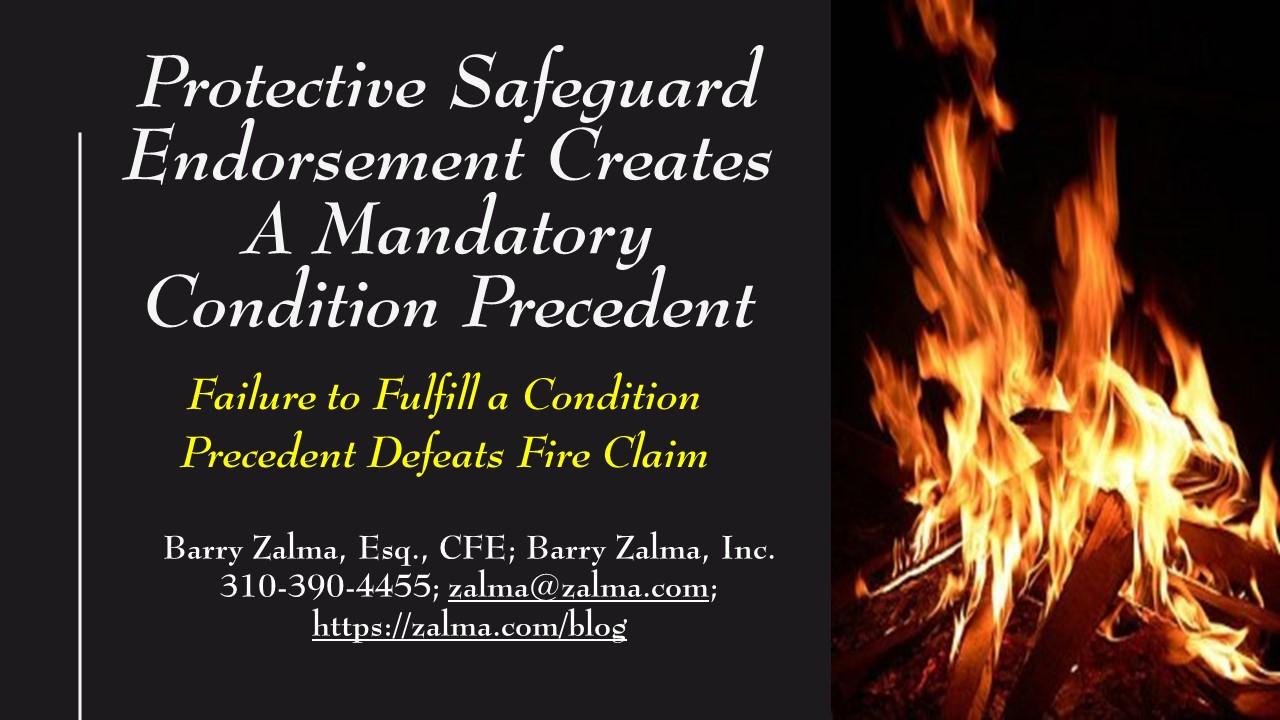Failure to Fulfill a Condition Precedent Defeats Fire Claim
Plaintiffs sued their insurance company to enforce their contractual rights to their insurance coverage. After Plaintiffs’ liquor store burned down, Defendant, the insurance company, AmGuard, refused to pay the claim. It reasoned that the coverage was excluded by Plaintiffs’ failure to maintain an automatic fire alarm.
In EW Hamilton Liquor Store, Inc. Et Al. v. Amguard Insurance Company, Case No. 17-13077, United States District Court Eastern District Of Michigan Southern Division (November 10, 2020) the USDC was asked to recognize the importance of a condition precedent to indemnity from an insurance policy.
FACTS
The plaintiffs were the victim of a fire. They admitted that at the time of the fire there was no automatic fire alarm protecting the premises. They sought indemnity for the damages caused by the fire.
ANALYSIS
Plaintiffs’ argued that “[a]t a minimum, under Michigan law, the issue of whether [they] substantially complied with the [insurance] policy’s condition of maintaining an ‘automatic fire alarm’ is a material fact question.” (emphasis added by the court). They contended that it must be presented to a jury since it was an issued that needed a factual determination. Plaintiffs claimed that conditions precedent, like the requirement of an automatic fire alarm in their policy’s Protective Safeguard Endorsement (“PSE”), need only be satisfied by substantial performance.
The Sixth Circuit, as well as several District Courts therein, have recognized that under Michigan law, the doctrine of substantial performance does not apply to an express condition precedent like the one at issue here. Substantial performance does not satisfy an express condition precedent.
The Court found, and Plaintiffs concede, that the PSE is a condition precedent to coverage under the policy. Indeed, it is an express condition. Failure to abide by its terms will preclude coverage, as contemplated by subpart B of the PSE.
As a result Plaintiffs’ argument fails. The doctrine of substantial performance is inapplicable to an express condition precedent.
Plaintiffs cited no authority for the proposition that substantial compliance with a condition precedent is sufficient to satisfy the condition precedent. The doctrine of substantial performance applies only when the contract does not explicitly require the obligation that was breached. The foundational error in Plaintiffs’ argument that substantial compliance with a condition precedent is unavailing and the insurer’s motion for summary judgment was granted.
ZALMA OPINION
Conditions precedent are important aspects of every insurance policy. A condition precedent is a promise made by the insured to the insurer to maintain a PSE – to give the insurer confidence that the insured will protect its property from the risk of loss by fire. Failure to fulfill the promise is a breach of a material condition and, as such, the failure defeats the claims made.




